The different types of acne: how to recognise and treat each form?

An allergic reaction, poor maintenance, an infectious disease: it's very easy to get acne. In fact, this form of inflammatory dermatosis spares no-one. Fortunately, it has been studied extensively by skin care professionals, who have developed various treatments. However, before treating acne, you need to know what type it is. Here's how.
Different types of acne
There are different types of acne caused by different factors. Here are the most common.
Hormonal or juvenile acne
This is the most common form of acne. It is linked to hormonal changes in the body, hence its name. During adolescence, the skin changes with the onset of puberty, leading to excessive production of sebum, which fills the pores of the skin, creating blackheads.
For some women, this form of acne appears during the premenstrual period due to variations in hormone production. Blemishes generally form on the lower part of the face. Finally, there's pregnancy acne, which is also very common and due to the hormonal upheaval that occurs during this period.
Acne retention
Also known as "microcystic" acne, retentional acne is caused by an overproduction of sebum coupled with a thickening of the skin. The pores become blocked, leading to the formation of blackheads. As for the skin, it becomes oily and shiny. However, it should be remembered that this form of acne is not easy to distinguish. Even the experts carry out a meticulous search for micro-comedones tending towards visible lesions, open or closed.
 |
PERFECT SKIN REGENERATING PEEL50ML / 1.7 FL OZ Highly effective against oxidative stress, boosting peel is a must-have for problem skin. Formulated with glycolic acid and lactic acid extracted from cane sugar, it gently and naturally exfoliates the skin. View product |
Inflammatory acne
This form of acne comes after retentional acne. It is characterised by red, raised and painful pimples called papules and pustules. It is often caused by an imbalance in the skin flora and is generally localised on the T-zone of the face, the décolleté and the back.
Severe acne
Severe acne manifests itself as red pimples that develop into deep lesions, forming nodules or cysts under the skin. To distinguish this type of acne, you need to identify the number and type of lesions. This form of acne generally requires professional treatment.
 |
MIRACLE DETOX YOUTH SERUM50ML / 1.7 FL OZ Promotes longevity and detoxification of cells and tissues. Your skin is moisturised, toned, refreshed and soothed on a daily basis. The radiance of the complexion of tired and intoxicated skin is considerably improved. View product |
Treatment
The golden rule in acne treatment is to avoid popping pimples when they are full of pustules. It's also very important to avoid exposure to the sun, as UV rays can worsen the condition of the skin. Finally, avoid stripping products.
Whatever the case, there are effective remedies for treating acne. You can start with gentle cosmetics that help regulate sebum production. Care products containing active ingredients such as benzoyl peroxide or salicylic acid are particularly recommended.
Finally, to treat more severe acne, you should see a dermatologist, who can prescribe more appropriate treatments such as antibiotics or retinoids. There are also oral treatments such as the contraceptive pill for women suffering from hormonal acne.
 |
INTENSE MATTIFYING CORRECTOR50ML / 1.7 FL OZ Your complexion regains its radiance Thanks to ingredients rich in vitamins E, C and antioxidants, the day cream intensely nourishes, replenishes, corrects imperfections and matifies problem skin on a daily basis. View product |




























